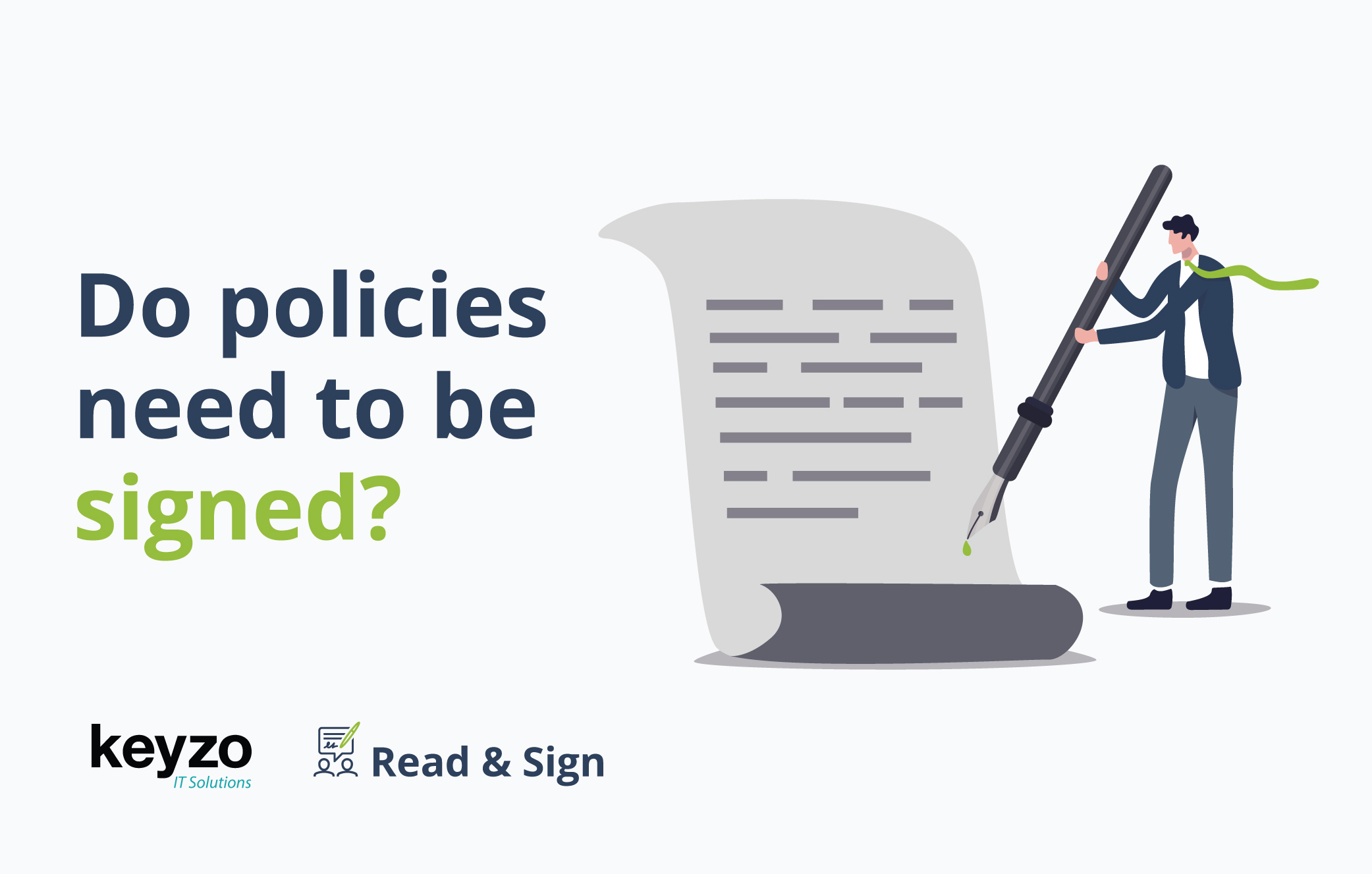
Do Policies Have to be Signed by Employees?
In the UK its common for employers to ask employees to sign documents acknowledging that they’ve received, read and understood company policies.
Though there is no legal requirement mandating employees to sign company policies, it is considered good practice for employers to ensure employees are aware of important information and how to apply it.
It’s essential that employers ensure their policies comply with employment laws and regulations, and that they effectively communicate these policies to employees.
Key Points:
Compliance and Security is the fourth biggest driver of eSignature adoption, according to the Aberdeen B2B Sales Cycle Report.
73% of leaders state that meeting compliance standards improves the perception of their business (source).
When Policy Acknowledgement is Enough
Acknowledging that employees have received and understood company policies is crucial.
This can be done in several ways, such as training sessions, providing on-going access to documents, clearly communicating expectations, and if you truly want to guarantee and track understanding, digital acknowledgement with software.
The key is to ensure that employees are genuinely aware of the rules and expectations within the workplace.
In some cases, a simple acknowledgement without a signature is sufficient, especially for less sensitive policies, for example:
Non-sensitive workplace rules: For less crucial policies that outline general conduct, like dress code and break times, an acknowledgement may be enough.
Company Culture and Values: Acknowledgement is often enough for policies that emphasise company values and culture, as they dont usually involve strict rules, more so expectations of behaviour.
Attendance and Punctuality: These are important aspects of employment but can easily be acknowledged without a signature.
When Policy signatures Matter
While not mandatory, obtaining a signature serves as tangible proof that an employee has acknowledged policies.
It can be particularly beneficial in situations where legal evidence of awareness may be required, such as during disputes or disciplinary action.
However, it’s important to understand that having a signature doesn’t automatically make a policy enforceable, the policy content and its compliance with employment laws plays a significant role. Examples of where signatures matter:
Confidentiality Agreements: When employees have access to sensitive company information, having signed a confidentiality agreement ensures they understand the important of keeping the information confidential.
Health and Safety Policies: Where safety is a priority, obtaining signatures on health and safety policies ensures employees acknowledge the importance of following safety protocols.
Intellectual property agreements: In workplaces where employees are involved in creating intellectual property for the company, a signed agreement can clarify ownership and usage rights.
Striking a balance between signature and acknowledgement
Why not just get every policy signed? Signing every policy adds a lot of admin, paper work and can make employees feel like they’re drowning in rules.
Sometimes, a simple nod of acknowledgement is all that’s needed for the less important policies. It saves time and builds team trust.
Finding the right balance between a simple policy acknowledgement and a signature is crucial for compliance and clarity in the workplace.
Here are some effective methods and strategies to manage this balance effectively:
Assess Policy Sensitivity: Evaluate the sensitivity of each policy to determine whether a simple acknowledgement suffices or if a signature is necessary.
Reserve signatures for policies involving confidentiality, safety and intellectual property, while acknowledgements may be suitable for less sensitive matters like workplace rules and company culture.
Clear Communication: Clearly communicate the importance of policies to employees, emphasising why the acknowledgment or signature is required for specific policies.
This ensures employees understand the significance of their acknowledgement or signature.
Digital Solutions: Use digital compliance software that allow digital acknowledgement and signatures in the same platform, like Read & Sign.
Such software allows employees to acknowledge policies digitally, and sign digitally when necessary, standardising how you distribute, log and track all of your feedback, regardless of acknowledgment or signature.
By implementing these strategies and making use of digital solutions, employers can effectively manage the balance between acknowledgement and signatures, ensuring that employees are aware of important policies while maintaining legal compliance.
Start tackling your Compliance challenges today
Take our system for a test drive completely free for 30 days and discover the benefits of Read & Sign. Cancel at any time.

Experience the full spectrum of capabilities without the cost. Try out additional functionality like our Questions module which is also free for 30 days. Activate module trials at any time.
Want to learn more?
Interested in learning more about Read & Sign? If you have any questions please get in touch.
